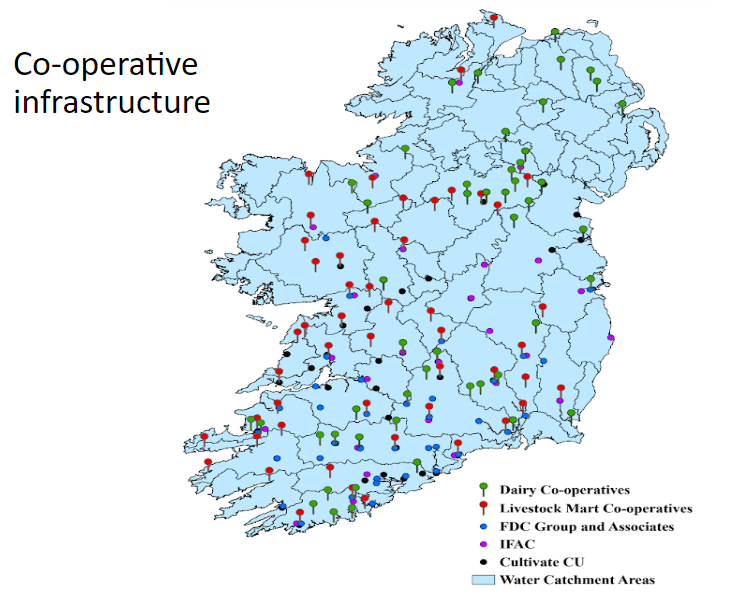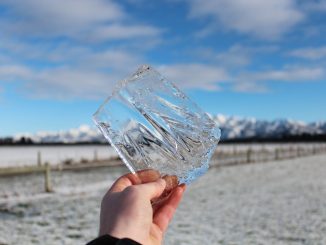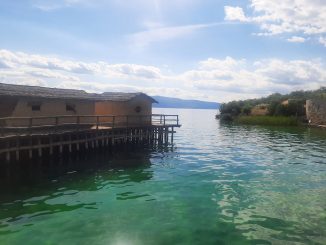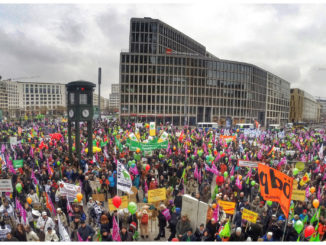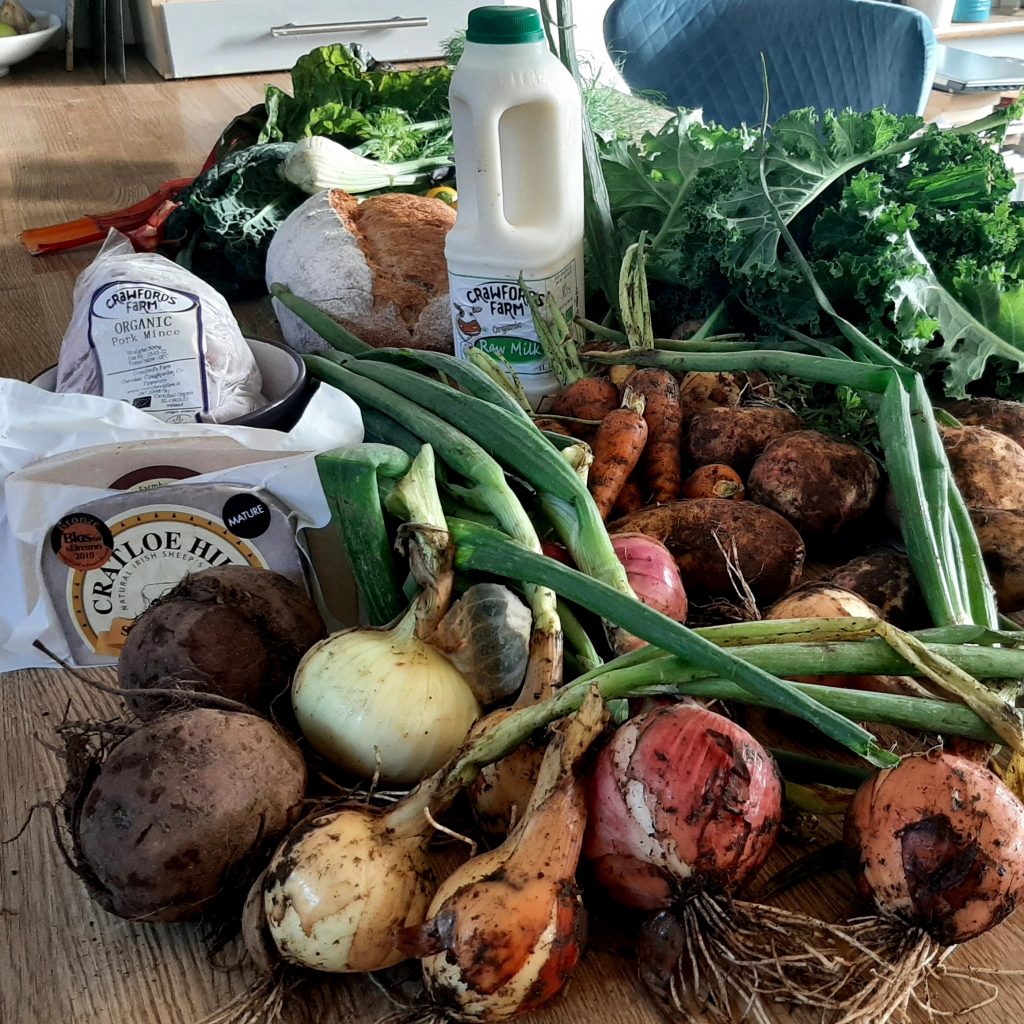
With many farms specialising, mixed farming in Ireland is now at only 3%. This compares to an EU average of 21%. Such specialisation has made Ireland vulnerable to global events as it relies heavily on feed and fertilizer imports for an export driven agri-food sector. Meanwhile, there has been a deterioration of ecosystems and a failure to reach climate targets. So what level of agri-food diversification is possible – and desirable – in Ireland? Article by Oscar Mooney.
On the 22nd April, Cultivate hosted a blended event featuring both physical and online participants held in WeCreate at Cloughjordan Ecovillage. This blended event built upon the report “Rural Ireland on the move: farm diversification and just transition” which is an attempt to collect reflections on how Irish farmers can extract more from value chains environmentally and was supported by Arc2020 and UCC’s Centre for Co-operative Studies.
Diversify Diversification
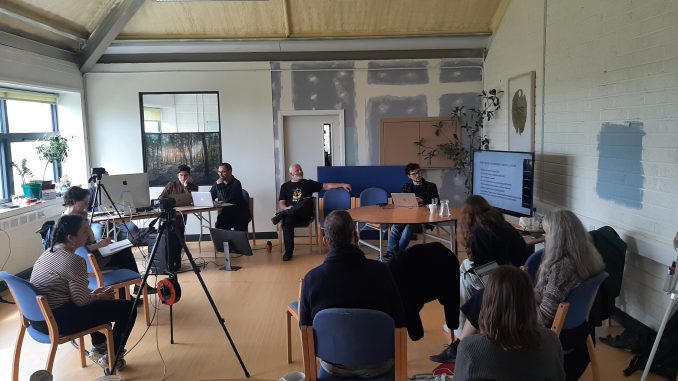
As the ongoing War in Ukraine is causing emergency reforms in Irish agriculture, we need to consider if the way we have been doing agriculture is really sustainable. Our Diversify Diversification event brought together a wide range of farmers, policy-makers, consultants, and rural actors to discuss how diversifying farming could help Irish agriculture transition to a healthier and more ecologically sustainable practice.
During this event, we heard from key speakers followed by breakout sessions where participants discussed the various levels of rural diversification.
Key Speakers
Dr. Noreen Byrne (Centre for Co-operative Studies UCC) explained how diversification policies can benefit from a landscape approach, which “integrates existing interventions and multi-stakeholders to simultaneously meet environmental and socio-economic challenges in a particular region”.
Ray Ó Foghlú then shared his experience working between forestry and agriculture: “We cannot be blind and pretend that afforestation in farmland can happen with simple economic schemes, without cultural and social considerations… If Ireland is to promote agro-forestry, new schemes must be locally adapted and flexible.”
Kate Carmody, Dairy farmer and chairperson of Hemp Co-operative Ireland shared her experience with hemp as a means of diversification: “The Hemp co-op is helping people to diversify on-farm, through value added processing. However, there are barriers to rural diversification like the lack of vision, policy, or access to capital.”
Thomas O’Connor from Talamh Beo explained how “local food supply chains have the potential to provide increased local employment, while reducing the environmental cost and negative effects on the climate.”
Breakout Sessions
The breakout sessions were streamlined by Matteo Metta distinguishing farm diversification at three different levels. These are
- Level 1: Farming diversification of crops and produce.
- Level 2: On-farm diversification of activities.
- Level 3: Off-farm and rural diversification
Level 1
Due to Ireland’s low share of mixed farming (3%) against the EU average of 21%, diversification is highly needed. Difficulties with diversifying at this level include the time required to a diverse range of crops and livestock, especially for low-income farmers. Digitalisation could aid the stimulation of biodiversity and farming diversification, while farmer-led cooperatives could lead on initiatives with both farmer and environmental benefit.
Level 2
In 2016, 12% of agricultural holdings in Ireland were engaged in other gainful activities against the EU average of 5.2%. However, difficulties lie in the fact that not all farmers are equipped to diversify, as well as deficits around meaningful engagement between policy-makers and farmers. Social arrangements need to be made to reduce workload and risks, while universal basic income or social wage for farmers would increase financial security.
Level 3
While off-farm employment sometimes can be a choice, in others it is a survival decision for farm holdings. There is a need to support a mix of businesses from agriculture, forestry, retail, and tourism to more modern industries such as financial services and creative industries. However, infrastructure and debt lock-in cause barriers to innovation. Overall, Ireland should work towards a more localised economy which in turn would ease financial burdens.
Conclusion
There are plenty of opportunities for diversification in rural Ireland – on the farm itself, off-farm and in rural areas in the forms of off-farm jobs, mixed farming, and cooperatives. However, various barriers exist in terms of infrastructure, communication with policy-makers, as well as the limited financial and time resources that farmers currently have.
The current War in Ukraine, energy and food security concerns and renewed nitrate derogations allowed in Ireland describes a rapidly changing national and international context. Emergency money for growing crops has been found, due to the war – however Ireland has been allowing the cropping area to decline rapidly, while its dairy sector has expanded. When confronted with all these events, there are more challenges than ever to accomplish a just transition with diversified agriculture in Ireland. A more robust, mixed, well integrated and sustainable farming landscape is needed – diversification has the potential to play its part.
Below find more including the longer report that foregrounded this event. For a longer summary of this event by Matteo Metta, in PDF form, see here: Rural Ireland on Move_Diversify Diversification_Webinar Report_28042022_OM For a related event on Just Transition see below. This event was possible thanks to the support of the Irish Environmental Network, Cultivate, UCC Centre for Cooperative studies and ARC2020.
More
Rural Ireland on the Move – new report on Just Transition and Diversification launched.

